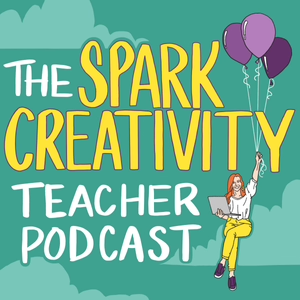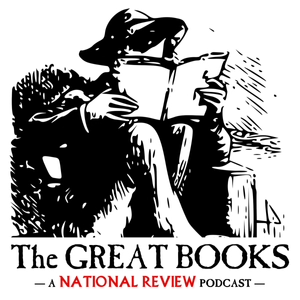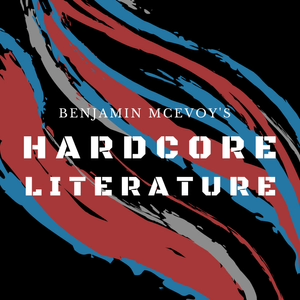
#222 How to Begin the Year in Reading and Writing Workshop — Craft & Draft
07/26/21 • 67 min
2 Listeners
Previous Episode

#221 Critical Race Talk with Calvin Robinson
Hello everyone, and welcome to a special 2 part episode of Teach Me, Teacher. The intro you are hearing (reading) now is exactly the same on both episodes titled, Critical Race Talk. This is due to the nature and ties of the conversations you will hear, and also the reasoning behind why I am putting out this content at all on this podcast. To start, I believe in discourse and the dismantling of echo chambers. While anyone with time on their hands or a history with Teach Me, Teacher can verify my political and social leanings tend to be towards what Americans call “the left,” — I do not deny this— I do not subscribe to any one ideology or framework. As an educator and academic, I pride the search for truth above all else, even when such truth may challenge my own beliefs about the world and its institutions. Essentially, I consider myself politically homeless. I do not find my political identity within strict party lines, rather, I listen to as many good intentioned sides and sources as I can, and decide how I will act accordingly. With that said, Teach Me, Teacher is first and foremost a “best practices” podcast. It is designed from the ground up to be a no-nonsense approach to professional development for educators— and its success and reach, I believe, is because of my commitment to this vision of what PD can be for teachers and administrators. However, best practices cannot be achieved without addressing the larger issues surrounding education and our communities. Teaching does not happen in a vacuum. Indeed, it touches nearly every aspect of life—how many professions can say that? — and with such a burden, comes the responsibility to contend with more than just academics. The sterilization of teaching into just being about standards, mastery, and skills, ignores the vast amounts nuanced factors that make such important aspects of teaching possible in the first place. In other words, what we believe directly affects how we act and teach. To ignore the human aspect of teaching in this way is to ignore what teaching is entirely. The following podcast, and its counterpart, which are both named the same, minus the guest involved, primarily deal with the controversial topic of Critical Race Theory and its association with public schools. Both episodes touch on various other factors and examine the issue through different lenses, but I believe they both offer nuance to the discussion that simply isn’t happening in most circles today. These episodes are not meant to be set up as combatants, which is why they are separated. Rather, I am presenting them as different lenses on the same subject. As the interviewer, I tried to be as non-biased as possible. I tied similar questions to each interview, but I also allowed for each guest to bring their own unique expertise to the discussion. I constructed each discussion around each guests’ unique platform and what they talk about. Whether this is an effective way to address this issue, will ultimately be up to you, the listener. I’m sure there are faults I cannot see, and lines of questioning I did not capitalize on, but these discussions are real discussions between people who care about education. The only editing present are quality adjustments and deletions of technical problems caused by recording over Zoom. Everything else has been untouched. As a quick side note: the only edit I would like to add here is about the data I talked about with Robinson in terms of pass rates based on race. It can be easily misunderstood because of how I said it, so I want to clarify that when I discuss the differing percentages student groups in Texas must hit to be considered proficient, I am referring to their groups as a whole, not individual pass rates. Moving on, I was upfront to each guest about the nature of how I would release these, so there is no gotcha imbedded into the release of these episodes. I respect both Professor Jarvis Givens and Calvin Robinson greatly.
Next Episode

Moving Forward Together — Season 6 Intro
Hello everyone! Welcome to the season 6 intro episode. Today, I'm going to discuss the new theme music (per tradition), and dive into some of the ideas that are shaping this season to be the biggest and most relevant yet. I touch on: Going back to the basics of the podcast, while at the same time pushing forward Bringing the community closer together Combating the war against public education And much, much more. This episode is sponsored by Heinemann—the leading publisher of professional books and resources for educators—and by their new book Teaching Writing in Small Groups by Jennifer Serravallo. Everyone’s turning to groups in this unique school year so they can teach more efficiently and spread the learning further. Jen shows you how to make the most of small groups. She gives you seven different options that help meet any students’ needs. Like strategy groups, guided writing, writing clubs, and more. She provides writing progressions to help you decide which students to group and why. There’s even video that demonstrates Jen’s teaching in a variety of classrooms. If you don’t have Teaching Writing in Small Groups, head on over to Heinemann.com to read a sample chapter. Find out what you’re missing and order yourself a copy today. Planbook has been the established leader in online lesson planning since 2010, offering collaborative lesson sharing, flexible administrator access, and even student view tools for just $15 a year. Using Planbook, educators can build customized school years, classes, and lessons 100% online, directly inputting class materials and up-to-date standards from all over the world. Enter code "TeachMe" (one word, no space) at sign up to join over 800,000 Planbook teachers today and get your first year for only $5!
If you like this episode you’ll love
Episode Comments
Generate a badge
Get a badge for your website that links back to this episode
<a href="https://goodpods.com/podcasts/teach-me-teacher-37092/222-how-to-begin-the-year-in-reading-and-writing-workshop-craft-and-dr-15663463"> <img src="https://storage.googleapis.com/goodpods-images-bucket/badges/generic-badge-1.svg" alt="listen to #222 how to begin the year in reading and writing workshop — craft & draft on goodpods" style="width: 225px" /> </a>
Copy




